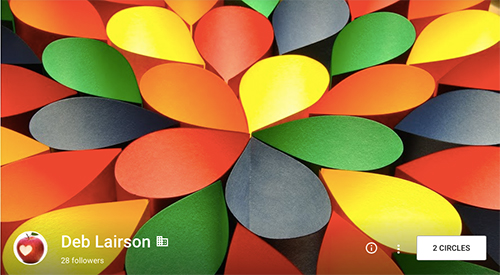Chapter 4: Responsibilities to Consider as Digital Citizens
4.7 Final Thoughts

Start small. I am a writing teacher who believes that children need to be taught different genres with craft and convention mini lessons on each genre, but I also believe that children need to be exploring writing in a variety of ways, which includes both traditional paper/pencil and writing digitally. I have found success by introducing different tools by using them as a class initially and then encouraging the children to use them independently for their own purpose. Last year I started with blogging and everyone was blogging at the same time. My goal is to get to the place where my students are all making decisions as to which medium they want to use as writers.
Just as the children have responsibilities, we do too. We have a responsibility to make sure that all of our students have the access that they need to become digital readers and writers. We also have the responsibility to digital writers ourselves. On my own I am playing around with app after app, thinking about the implications for my classroom. I find opportunities where I can work with other teachers who are interested in digital literacy. One group I joined was called “Digital Maker Playground.” In this group, we worked on a variety of digital writing pieces using different digital tools of our choosing. I was intimidated at first, since my experience was so small, but after playing for awhile, and seeing what the others in the group were doing, I became more relaxed and excited about my work. Through the sharing of our compositions and conversations about our writing process, I learned that I didn’t need to have all the answers before starting. I just needed to start. Check out the Digital Maker Playground here and think about working with a group of colleagues to play around with the things that you are going to be asking your students to try.
“Twitter Hashtags to Follow” Presentation
Taking the responsibility of being a digital writer myself and being able to reflect with a colleague, helped me think through and understand the pieces of digital citizenship and teaching those responsibilities to our students. It is important that our students understand the responsibility that comes with putting their work out in a public space. They begin to learn at an early age to give back to their digital community. It’s not enough to read what others are posting. Responding to others’ writing fosters conversation and community. Those responses are most meaningful when students’ comments reflect that they are reading carefully and ensuring that they understand the author’s intended message. They are also responsible for the content they publish. Elementary aged children are at the perfect age to learn the boundaries of what is appropriate and what is not appropriate to publish (either traditionally or digitally). By teaching students how to be digitally responsible at an early age, we are giving them the foundation they need to make good decisions as digital readers and writers.